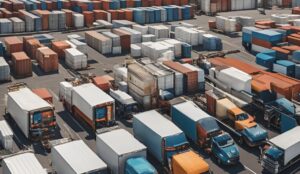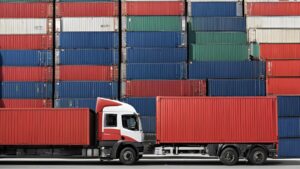The world is at a critical juncture in the fight against climate change. With global temperatures continuing to rise and extreme weather events becoming more frequent and severe, there is an urgent need to reduce greenhouse gas emissions and transition to a low-carbon economy. The goal of achieving net-zero emissions by mid-century has been embraced by governments, businesses, and investors worldwide as a critical step in addressing the climate crisis. However, the path toward net-zero will not be the same for every country and region. Different countries and regions face unique challenges and opportunities in their transition to a low-carbon future, influenced by factors such as economic development, energy mix, and political priorities. In this blog post, we will explore how the net-zero transition would play out in different countries and regions, and examine the challenges and opportunities they face in the race to avert the worst effects of climate change.
The US and Europe
In developed countries such as the United States and Western Europe, the transition to net-zero is likely to focus on decarbonizing their energy systems, including the phasing out of coal and gas power plants, increased investment in renewable energy, and the electrification of transport. These countries have the advantage of having well-established infrastructure and institutional frameworks, as well as access to technological and financial resources to support the transition.
Africa and SE Asia
In developing countries, particularly in sub-Saharan Africa and Southeast Asia, the challenges of achieving net-zero are different. These countries often lack access to modern energy infrastructure, and a large percentage of their population still relies on traditional biomass for cooking and heating. The transition to a low-carbon economy in these regions will require significant investment in energy infrastructure and technology, as well as support for local communities and vulnerable groups.
China
In China, the world’s largest emitter of greenhouse gases, the transition to net-zero is already underway, driven by the government’s commitment to peak emissions by 2030 and achieve carbon neutrality by 2060. The country is investing heavily in renewable energy and electric vehicles, as well as exploring carbon capture and storage technologies.
The Middle East and North Africa
The net-zero transition in the Middle East and North Africa region will be influenced by the countries’ dependence on fossil fuels, with oil and gas production accounting for a significant portion of their economies. However, some countries in the region, such as Saudi Arabia and the United Arab Emirates, are already taking steps to diversify their economies and invest in renewable energy
What to keep in mind for the future
While the path towards net-zero may vary depending on each country’s unique circumstances, it is clear that the transition to a low-carbon future is essential for the long-term health of our planet. By working together, governments, businesses, and individuals can create a sustainable, equitable, and prosperous future for all.
As we have seen, the path towards net-zero emissions will vary significantly between countries and regions. However, one thing is clear: the transition to a low-carbon future is essential for the long-term health of our planet. Governments, businesses, and individuals all have a role to play in achieving this goal, and it is essential that we work together to create a sustainable, equitable, and prosperous future for all.
For businesses, the net-zero transition presents a unique set of challenges and opportunities. Companies will need to reduce their own emissions while also supporting their suppliers and customers to do the same. However, the transition to a low-carbon economy also presents opportunities for innovation, new markets, and increased competitiveness.
To navigate this complex landscape, companies need to learn from their peers. By sharing best practices, collaborating on innovation, and working together to create new markets and opportunities, companies can accelerate the transition to a low-carbon future and create shared value for all stakeholders.
The Global Summit on Scope 3 Emissions Reduction will bring together key industry experts to learn more about reporting strategies & carbon data management in a small-scale, industry-driven event, on 20-21st April 2023 in Amsterdam, the Netherlands. The two-day, hybrid event features in-depth case studies of supply chain transformation, carbon accounting, and networking breaks dedicated to exchanging insights and expertise on tackling Scope 3 emissions. Visit future-bridge.eu and netzero-events.com or follow us on our social media to track other energy use and decarbonization events.





